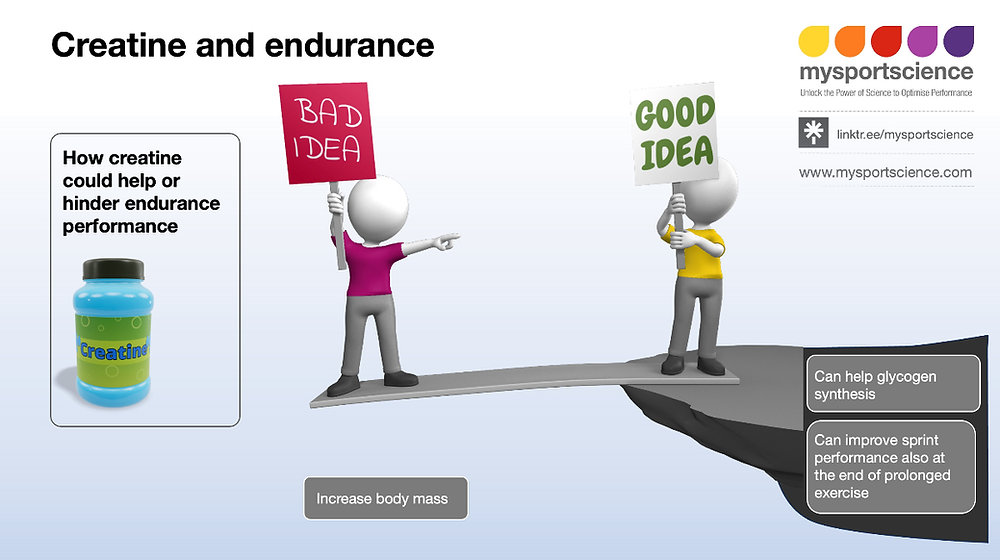Creatine has emerged as one of the most researched supplements in sports nutrition, demonstrating beneficial effects for athletes across various training modalities, including endurance disciplines. For experienced endurance athletes engaged in long-duration events, understanding how creatine supplementation can enhance performance, especially in high-intensity scenarios—like sprint finishes or critical breaks—is paramount. While traditionally associated with strength training, recent findings suggest that creatine offers advantages in endurance contexts, mediated through energy production and recovery processes.
Endurance athletes typically prioritize carbohydrate intake to fuel their prolonged efforts, as glycogen stores are critical for sustained performance. Creatine, synthesized from the amino acids arginine, glycine, and methionine, plays a complementary role by enhancing phosphocreatine stores within muscles. This stored energy compound facilitates rapid ATP resynthesis, making it particularly useful during high-intensity segments interspersed throughout longer races. Taking creatine can raise muscle phosphocreatine levels by approximately 20%, an increase that can contribute to better performance during surges or sprints.
Over the course of high-volume training or competition, maintaining adequate glycogen levels becomes essential; low glycogen can detrimentally affect performance. Creatine supplementation, when paired with carbohydrates, enhances glycogen resynthesis, which can optimize energy availability during the initial phases of events, ensuring athletes start races with sufficient stores. This is particularly important for long-distance racing conditions involving elevation changes and varied pacing strategies. The presence of creatine may buffer hydrogen ions, mitigating fatigue during high-intensity intervals. This effect allows athletes to sustain greater efforts in challenging phases of a race, permitting more significant energy output and potentially better finishing performances.
Moreover, emerging research indicates that creatine may reduce oxidative stress and inflammation following endurance activities. This could aid in recovery, a critical aspect for those training at high volumes. Enhanced recovery allows athletes to train more effectively without excessive fatigue, minimizing the risk of injury. The combined effect of creatine in supporting performance while simultaneously promoting recovery showcases its dual benefit in the endurance athlete’s nutrition strategy.
One noteworthy study examined the impact of creatine supplementation amid fatigue-inducing training regimens on rats, revealing that creatine users preserved fast-twitch muscle characteristics even as their oxidative capacities improved. While animal studies necessitate caution in extrapolating to human performance, they do suggest that creatine can aid endurance athletes undergoing extensive training phases in maintaining power output during short, intense efforts like sprints. This preservation of muscle function may be especially relevant during crucial race moments when pacing strategy can significantly alter race outcomes.
In practical application, successful integration of creatine into your nutrition plan should also consider gut tolerance and timing. While many endurance athletes might instinctively avoid creatine during training, the supplement could become vital when planned properly around key sessions. It is essential to identify individual tolerance levels, as some may experience gastrointestinal discomfort from creatine; finding the optimal timing for supplementation—potentially post-training within a carbohydrate-rich recovery window—can diminish this risk. The acute and chronic adaptations from creatine are maximized when combined with well-timed carbohydrate intake, optimizing muscle recovery and glycogen replenishment.
Attention to hydration is equally crucial when introducing creatine supplementation, as it can lead to water retention in muscles. Ensuring adequate fluid intake not only supports the body’s physiological adaptations but also caters to the increased fluid needs that may be necessary due to this retention. Athletes should tune into their hydration strategies, maintaining a fluid balance that supports both performance and recovery throughout their training loads.
Additionally, metabolic efficiency remains a critical theme for endurance athletes. Creatine’s role in optimizing ATP generation plays seamlessly into fueling strategies developed alongside traditional carbohydrate sources. Understanding how to strategically use creatine can enhance performance without undermining the benefits derived from carbohydrate-loading strategies typically employed before races or long runs.
From a high-performance perspective, it may be beneficial to consider creatine supplementation during periods of intense training where short-duration, high-intensity efforts are expected, such as during race prep or specific training phases. Athletes engaged in repeated bouts of intensity within their endurance framework will find creatine can effectively support these endeavors, contributing to improved overall training adaptations.
In summary, creatine supplementation can play a worthwhile role in improving endurance performance, particularly for athletes looking to maintain power and speed during taxing race conditions. Creatine’s potential to enhance recovery and buffer fatigue underscores its relevance within endurance-focused nutrition strategies. As you consider its integration into your training, the practical takeaway is to experiment with creatine around your key training sessions, monitor gut tolerance, and combine it with timely carbohydrate intake for maximized energy recovery. This approach not only positions you well for performance but ensures recovery periods remain efficient and effective, ultimately supporting your goals in endurance racing contexts.
